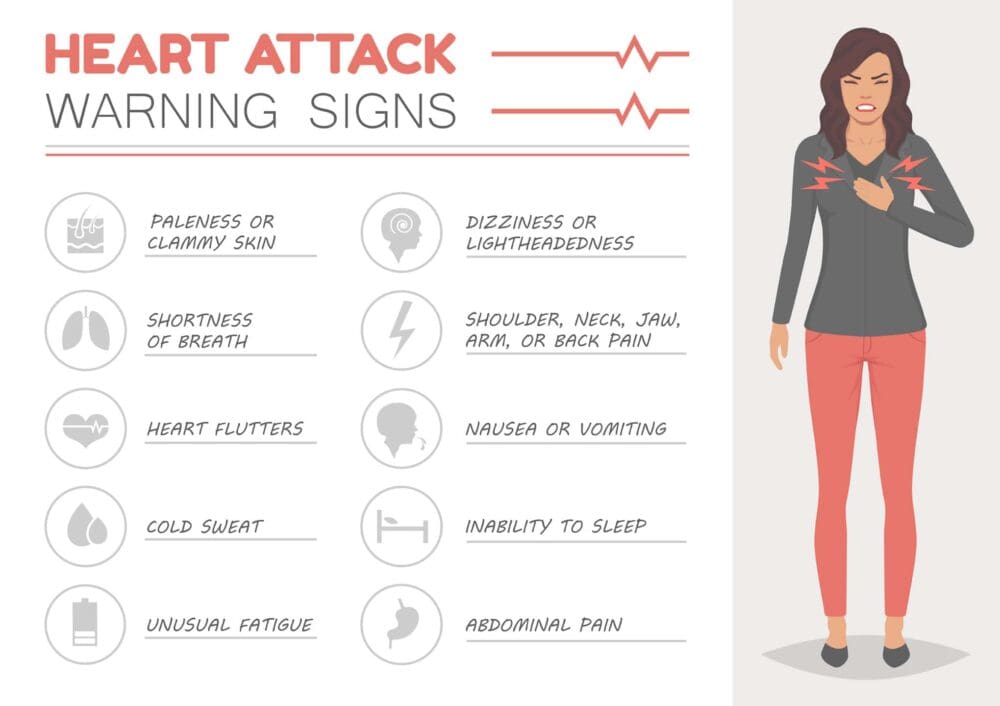When it comes to heart attacks, most people immediately think chest pain with pain in the left arm. While those are two of the main warning signs of a heart attack, there are actually an abundance of other symptoms people experience that indicate they’ve suffered a heart attack.
According to WebMD, “More than 1 million Americans have heart attacks each year. Also called myocardial infarction, or MI, heart attacks can be deadly if medical care isn’t received quickly.”
Luckily, medical research is paving the way to a quicker diagnosis that can save more lives. Did you know when someone goes to the hospital worried they’re experiencing heart attack symptoms, they have to take tests and wait up to six hours for the results? If urgency is the key to care, that doesn’t seem quite right.
The American Heart Association announced in Circulation that the US Food and Drug Administration (FDA) approved a new blood test that quickly measures the amount of troponin T in your system. This protein is released when the heart muscle is damaged. The more the heart is damaged, the larger the amount of troponin T. This new test can potentially rule out a heart attack in less than an hour.
What’s interesting about the research for that blood test is over the course of three months 536 patients visited the emergency room with heart attack symptoms: 60% chest pain, 16% shortness of breath and 24% other complaints. That means more than 120 people went to the ER with unexpected heart attack symptoms.
 So how do you know if you’re having a heart attack? What does it feel like?
So how do you know if you’re having a heart attack? What does it feel like?
- Pressure in the chest that feels like something heavy is pressing down on you. It could also feel like a big rope is being tightened around your chest.
- Chest pain or a squeezing sensation in the chest that lasts for more than a few minutes. It may go away and then come back.
- Pain in the left arm that seems to radiate down towards the chest. The pain can also be in both arms or move from right arm to left arm.
- Sudden intense “clenching” pain in the jaw, arm(s), neck, back or stomach.
- Breaking out in a cold sweat with unexplained nausea, indigestion, vomiting or dizziness.
According to the American Heart Association, these are the most commonly reported warning signs of a heart attack:
- Tightness or discomfort in the chest
- Lightheadedness, nausea or vomiting
- Jaw, neck or back pain
- Discomfort or pain in jaw or shoulder
- Shortness of breath
The reality is heart attacks are not always a dramatic occurrence like we see on TV and in movies. Sometimes heart attack symptoms can be as subtle as feeling like you have the flu. But heart attacks are deadly, so if you “feel” something that’s not right and you’re worried, you can’t take any chances.
And what about the aspirin trick?
Nieca Goldberg, M.D., medical director for the Joan H. Tisch Center for Women’s Health at NYU’s Langone Medical Center and an American Heart Association volunteer says, “Many women I see take an aspirin if they think they are having a heart attack and never call 9-1-1. But if they think about taking an aspirin for their heart attack, they should also call 9-1-1.”
Do you know what a heart attack feels like? How would you describe it? Help other people recognize the warning signs by sharing your story in the comments section.





I was 53 when I had my heart attack. Over the course of 4 days I had 3 episodes of discomfort in my chest that went down my left arm. The first 2 times I got it to go away with ibuprofen, but the third time I couldn’t get it to stop. None of these episodes was excruciating like I thought a heart attack would be. I went to the hospital and sure enough I was having a heart attack.